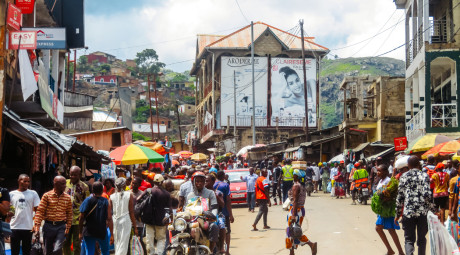Event
US Republican lawmakers have made efforts to halt funding from the IMF to CEMAC member states (Economic and Monetary Community of Central Africa: Congo Republic, Chad, Cameroon, the Central African Republic, Equatorial Guinea and Gabon) over the repatriation of capital set aside by oil and mining companies for the financing of the environmental restoration of extraction sites once production ends, the so-called RES funds (Restoration of Extraction Sites). The dispute with international oil companies has been ongoing since 2018, but recently escalated after the BEAC (Bank of Central African States) set the deadline of compliance on 30 April 2025, threatening with a 150% penalty on the funds concerned in case of non-compliance.
Impact
CEMAC countries are in a dispute with international oil companies over a foreign exchange regulation that requires companies to repatriate RES funds into escrow accounts controlled by the BEAC, the regional central bank. This stems from a 2018 regulation passed under IMF support to build up foreign exchange buffers and bolster their economies. It requires the funds (about USD 5 billion to USD 10 billion) set aside by international oil companies for future environmental clean-up operations, currently held in foreign banks, to be moved to the BEAC. Regional governments and the IMF regard this as a viable and critical move to overcome liquidity pressure with foreign exchange reserves at merely 4.2 months of import cover at the end of 2024 (USD 11.3 billion), a barely adequate level to defend the CFA currency peg to the euro. The bill introduced by US lawmakers argues that these funds are contractually restricted to future environmental rehabilitation and should not be used as foreign exchange reserves by a central bank.
In support of the international oil companies’ ultimate effort to get rid of regional regulation, US members of Congress are trying to block IMF financial support for all CEMAC member countries to raise pressure. This could have serious consequences for the Central African countries that heavily rely on financial support from the IMF (especially Cameroon and the Republic of Congo), while weaker regional liquidity levels could threaten the monetary union’s financial stability and raise non-payment risks. For now, the bill is not likely to pass as it has insufficient sponsors, but pressure might increase over time.
The CEMAC zone is highly dependent on hydrocarbon export revenues, which has exposed its member states to severe commodity price fluctuations, production drops and a string of global crises over the past two decades. The outlook is clouded by great uncertainty, low oil prices and fiscal slippages. The recent threat to vital financial support from the IMF could endanger the near-term financial position of the region, as all CEMAC member states rely on IMF financial support programmes, except Gabon and Chad that are nevertheless expected to seek new IMF support this year since their previous programmes went off track. A US blockage of IMF support could be considered somewhat in line with what is expected to be Trump’s Africa policy: purely transactional, repulsing any form of ‘concession’.
Analyst: Louise Van Cauwenbergh – l.vancauwenbergh@credendo.com
